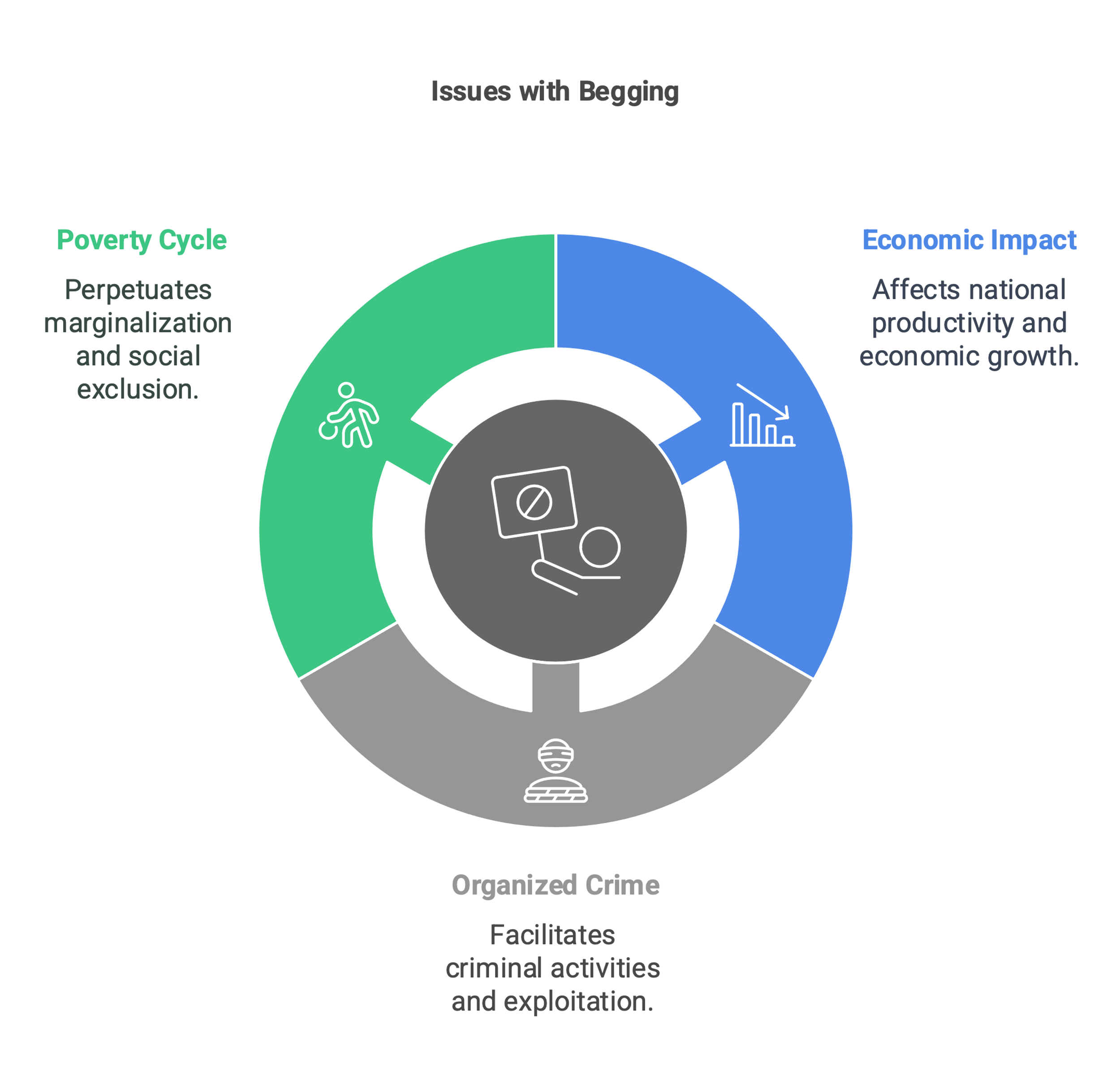Bhopal administration, exercising powers under Section 163 of the Bharatiya Nagarik Suraksha Sanhita (BNSS), 2023, prohibits all types of begging, giving alms to beggars and buying any goods from beggars.
- Section 163 of BNSS empowers District Magistrate to direct any person to abstain from a certain act to prevent danger to human life or disturbance of public tranquillity.
- According to Census 2011, there are 4.13 lakh beggars and vagrants in India.

Provisions concerning Begging
- Article 23 of Constitution: Prohibits traffic in human beings and begar and other forms of forced labour.
- Central Sector Scheme for Comprehensive Rehabilitation of persons engaged in the act of Begging: A sub-scheme under SMILE (Support for Marginalized Individuals for Livelihood and Enterprise) Scheme by Ministry of Social Justice & Empowerment.
- State Legislations and Projects: Bombay Prohibition of Begging Act (BPBA), 1959; Rajasthan Rehabilitation of Beggars or Indigents Act, 2012.
- Court Judgement: In Harsh Mander Case (2018), Delhi High Court held some provisions of BPBA 1959 that criminalised begging as unconstitutional.
Way Forward (Advisory by National Human Rights Commission)
- Drafting National Policy for protection and rehabilitation of beggars.
- Legislate an anti-human trafficking law to curb forced begging.
- Build national database of beggars with their physical, mental, and social status.
- Others: Essential services under shelter homes, dismantling organized syndicates, promote targeted skill development and employment etc.



